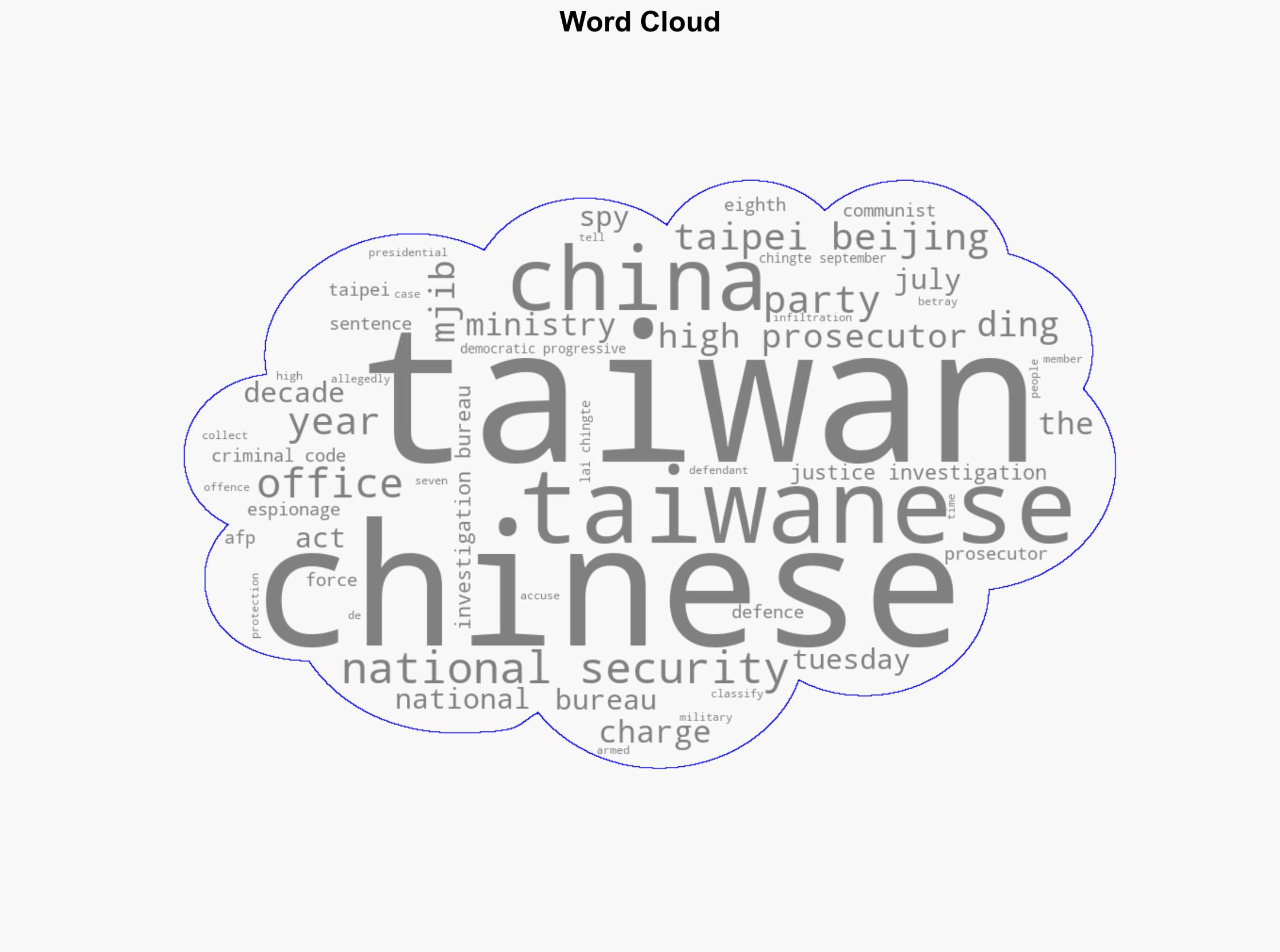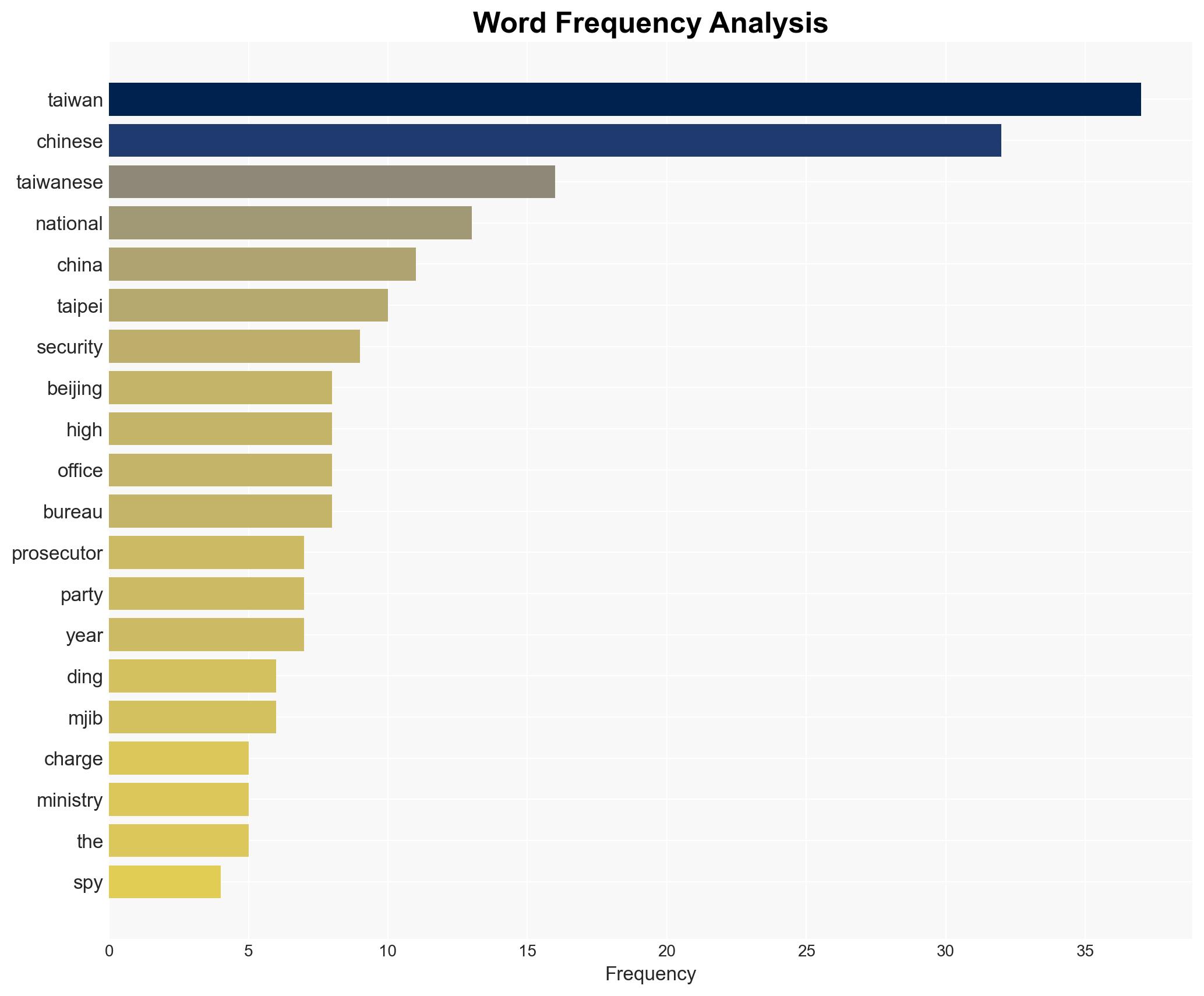Taiwan charges Chinese national and six others for spying – CNA
Published on: 2025-11-18
AI-powered OSINT brief from verified open sources. Automated NLP signal extraction with human verification. See our Methodology and Why WorldWideWatchers.
Intelligence Report:
1. BLUF (Bottom Line Up Front)
The most supported hypothesis is that the espionage activities are part of a broader Chinese strategy to undermine Taiwan’s national security and gather intelligence on its military capabilities. This aligns with historical patterns of Chinese espionage efforts targeting Taiwan. Confidence level: High. Recommended action includes enhancing counterintelligence measures and strengthening international alliances to deter further espionage activities.
2. Competing Hypotheses
Hypothesis 1: The espionage activities are part of a systematic Chinese effort to infiltrate and weaken Taiwan’s defense capabilities, consistent with Beijing’s long-term strategic objectives regarding Taiwan.
Hypothesis 2: The espionage activities are isolated incidents driven by individual actors seeking personal gain, rather than a coordinated effort by the Chinese government.
Hypothesis 1 is more likely due to the involvement of multiple individuals, including a Chinese national, and the historical context of Chinese espionage against Taiwan. The systematic nature of the recruitment and the focus on military secrets suggest a coordinated effort.
3. Key Assumptions and Red Flags
Assumptions include the belief that Chinese espionage efforts are state-sponsored and that Taiwan’s defense capabilities are a primary target. Red flags include the potential for deception by the accused individuals to downplay the extent of their activities. The reliance on local collaborators indicates a sophisticated approach to espionage, raising the risk of further infiltration.
4. Implications and Strategic Risks
The espionage activities pose significant risks to Taiwan’s national security, potentially compromising military strategies and capabilities. This could lead to increased political tension between Taiwan and China, with potential escalation into cyber or informational warfare. Economically, heightened tensions could impact Taiwan’s trade relations and foreign investment.
5. Recommendations and Outlook
- Enhance counterintelligence operations to detect and prevent espionage activities.
- Strengthen international alliances to increase diplomatic pressure on China.
- Invest in cybersecurity measures to protect sensitive information.
- Best-case scenario: Successful counterintelligence efforts deter further espionage, leading to improved national security.
- Worst-case scenario: Escalation of espionage activities leads to increased political and military tensions, potentially resulting in conflict.
- Most-likely scenario: Continued espionage efforts by China, requiring ongoing vigilance and international cooperation.
6. Key Individuals and Entities
Chinese national: Ding. Taiwanese prosecutors and the Ministry of Justice Investigation Bureau (MJIB) are key entities involved in the investigation.
7. Thematic Tags
Structured Analytic Techniques Applied
- Cognitive Bias Stress Test: Expose and correct potential biases in assessments through red-teaming and structured challenge.
- Bayesian Scenario Modeling: Use probabilistic forecasting for conflict trajectories or escalation likelihood.
- Network Influence Mapping: Map relationships between state and non-state actors for impact estimation.
Explore more:
National Security Threats Briefs ·
Daily Summary ·
Support us





